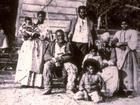This year, our nation will observe the 156th anniversary of Juneteenth (June 19), the day enslaved African Americans in Galveston, Texas, finally learned they were freed.
Although President Abraham Lincoln issued his Emancipation Proclamation on January 1, 1863, and the Civil War ended in April 1865, men, women and children who were enslaved in Texas did not learn of their freedom or of the Union victory for far too long. At the time, Confederate forces were still fighting for control in Texas and slave owners hid the news.
That changed when Brigadier General Gordon Ganger arrived in Galveston with his troops and declared that those who were enslaved were free.
In the years following their liberation, African Americans celebrated what came to be known as “Juneteenth” (“June” + “Nineteenth”). But it was not until 1980 that Juneteenth became an official state holiday in Texas. Now, 47 states and Washington, D.C. recognize Juneteenth as a holiday, and legislation has been proposed to make Juneteenth a national holiday.
Although Juneteenth celebrations began in Texas, they are important to all African American communities in our nation.
On June 19, 1865, the Freedmen’s Colony on Roanoke Island, which was established in 1862 as a safe haven for enslaved people seeking freedom, was beginning to decline after growing into a thriving, established community over three years.

According to the National Park Service:
“At the end of the war, a government order restored all lands that were confiscated by the Union army back to the original owners. The Black residents on Roanoke Island failed to receive the rights and privileges to their homesteads promised by the government when they established the colony. Further government orders that reduced food rations and other necessities of life ushered in the beginning of the end. The colony’s population declined by half from 1865 to 1866 as residents left to seek a new life elsewhere.”
The colony was decommissioned in 1867, but some descendants of the freedmen live on and around Roanoke Island today, like local community leaders Virginia Tillett and Darrell Collins.
Read on to learn more about the enduring legacy of the freedmen on Roanoke Island or visit Fort Raleigh National Historic Site and join a ranger for a Freedmen’s Colony program, offered daily from 11 a.m.-11:30 a.m. and 2 p.m.-2:30 p.m. (meet in the plaza outside the Visitor Center). You can also watch this video from Roanoke Island Festival Park featuring Virginia Tillett and Darrell Collins: https://www.facebook.com/roanokeisland/videos/2719671604977523
Photograph courtesy of the National Park Service.
